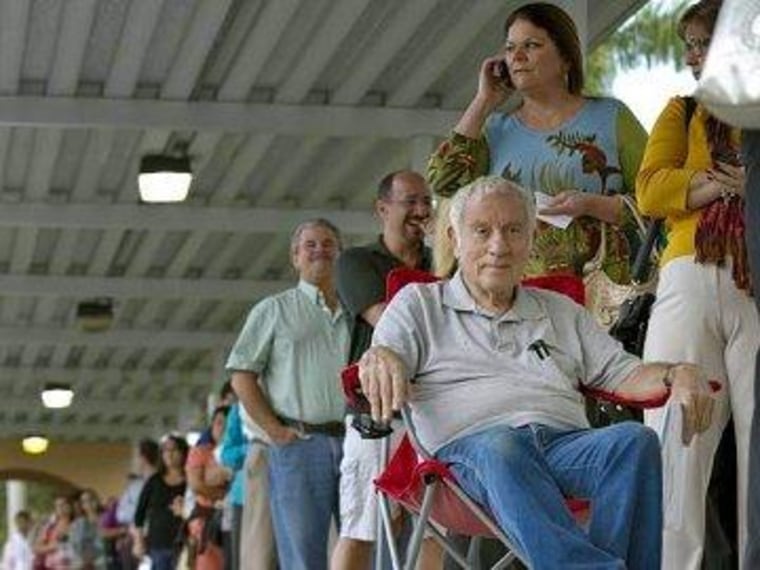There was a widely held fear after Election Day that systemic voting restrictions would soon be forgotten. The outrage over voter-suppression tactics was real -- unnecessary voter-ID laws, closed early voting windows, ridiculously long lines and waiting times -- but once the election came and went, would the political world's short attention span forget the fiascos?
Fortunately, no -- or at least, not yet. Several Democratic members of Congress have already unveiled modest-but-helpful election reforms, and in the Obama administration, Attorney General Eric Holder continues to take the issue very seriously.
In a speech at the John F. Kennedy Presidential Library and Museum in Boston, Holder slammed "our antiquated registration system" as the "single largest barrier" to American voters, specifically criticizing long voting lines and complicated registration rules during the 2012 election.Holder suggested an "automatic, portable" registration system that allows election officials to use government databases to register voters automatically and keep their registration current when they move. He also said reforms could include longer voting hours and weekend voting, same-day registration and a new method of redistricting "that can't be abused to protect incumbents and undercut electoral competition."
It's extremely unlikely that congressional Republicans would consider federal legislation to improve voter access or correct the flaws that plagued so many areas last month. But Holder's remarks are welcome anyway, in part because they offer worthwhile reforms that deserve to be part of the public debate, and in part because they keep the issue alive, resisting institutional inertia that pulls the focus away from elections once they're over.
Over the last two years, Republicans imposed the most sweeping voting restrictions since the Jim Crow era, and though the tactics failed to produce the electoral results they wanted, the GOP's efforts made it more difficult for many Americans to participate in their own democracy. Indeed, looking ahead, many Republican officials still hope to make matters worse, as we'll discuss in more detail a little later this morning.
It's why it's heartening for the Attorney General to keep the issue on the front burner -- the more attention this gets, the better.
